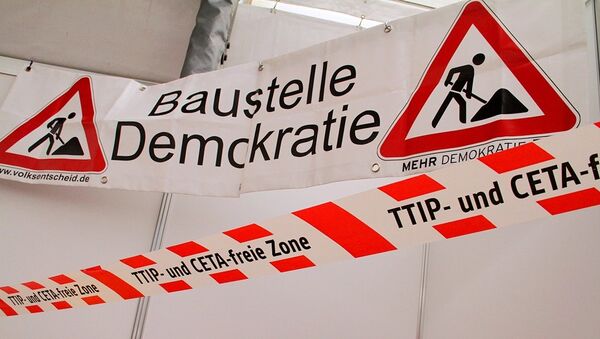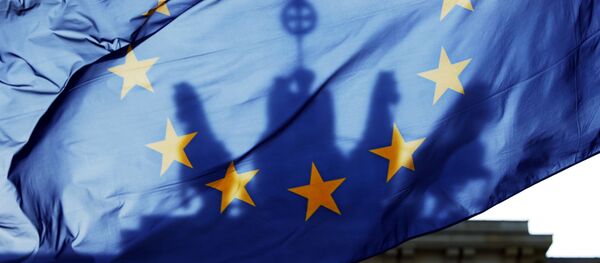The controversial TTIP agreement, under negotiation between the European Union (EU) and the United States could lead to the world's largest free-trade area. Yet, although this could help to boost economic growth and create jobs on both sides of the Atlantic, there are concerns about the consequences the deal could have as well as the secretive nature of the negotiations.
France and Germany now both voicing concerns about #TTIP. Wish UK government would give a clear No to corporate takeover of our democracy!
— Kristofer Keane (@KristoferKeane) November 13, 2015
According to the Süddeutsche Zeitung, the German Ministry of Economy has instructed the country's ambassador in Washington to deliver a "public reproach that TTIP is negotiated beyond the reach of parliaments and with disregard for democratic rights."
Many of the documents pertaining to the TTIP talks are held at the US embassy in Berlin, the access to which is extremely limited, meaning that German lawmakers find it difficult to find out the detail of what is under discussion.
— Trent (@trentGhiloni) November 9, 2015
TTIP #TPP #StopTTIP pic.twitter.com/hdxKyMC2b0
— Freedom Fighter (@3499ba269040438) June 14, 2015
Critics have slammed the talks for being secretive and being dominated by multinational lobby groups keen to ensure a market free from overregulation. The decision to withhold documents close to the talks, many of which can only be accessed from a secure room at the US embassy, have also been widely criticized.
Lack of Transparency
The EU and the US already trade goods and services worth over US$2 billion every day, but the TTIP would create further growth and new opportunities by eliminating red tape and tariffs wherever possible to reduce costs and open up new markets.
However, critics say the TTIP will pave the way for huge multinationals to have more controlling powers than governments. Central to the talks is the issue of investor-state dispute settlement, or a version of it, that gives shareholders the power to sue governments if regulatory issues cause financial harm to a company.
French trade minister Mathias Fekl has criticized the negotiations for the Transatlantic Trade and Investment Partnership (TTIP) EU-US free trade agreement as being "not transparent", warning the talks could come to an end.



